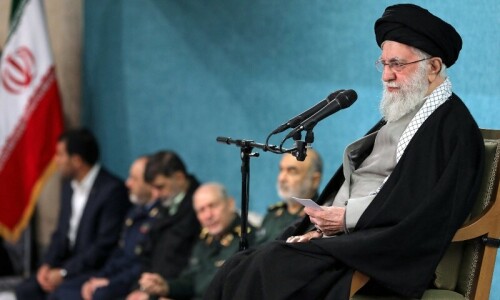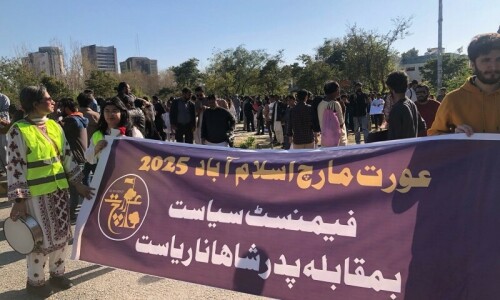
Joan Robinson was one of the greatest economists of her times. She was a theorist, with little interest in empirical research. Economic development wasn’t a major focus of her work and she thought of history as a principle of change in her economic logic. Her academic work had convinced her that markets fail, governments must intervene and socialist governments could intervene more effectively than capitalist ones.
Toward the end of her intellectual journey, Robinson visited China eight times between 1953 and 1978. Mao Zedong initiated many controversial reforms during this period, but she always defended them and wrote appreciative articles about him and China. While she was roundly attacked by critics, in 1982, Australian economist Geoffrey Harcourt offered what became the canonical apologia: “Her writing ... contains a leaven of advocacy, a conscious effort to try to offset what she believes to have been the unsympathetic critiques of Chinese policies which emanated from orthodox circles.”
Pervez Tahir never met Robinson. But he wrote his PhD thesis on her development-related work, under Geoffrey Harcourt, at Cambridge in 1988. He revisited her writings on China in an unpublished monograph in 1990. In 2002, he published a short version of it (jointly with Harcourt and Prue Kerr). Making Sense of Joan Robinson on China is the finalised version of that unpublished monograph.
Tahir’s exposition is technical yet clear and richly supported with quotes from Robinson and her critics, his own rebuttal of critics and detailed references to historical context. While not an easy read, the persevering reader will be rewarded by insights into some key issues in development economics and China’s modern history.
Tahir transforms Harcourt’s leaning-against-the-wind defence into a more colourful three-phase tale of innocence, fall and redemption. By identifying two breaks in Robinson’s thinking, he creates three phases. He then identifies the first and third phases with “capitalist” views, considered sensible, that are associated with “the rightist takeover” during the post-Mao transition to the Deng Xiaoping era (1978-89). This reduces the need for him to justify only the second phase (1963-75); an aberrant, sharply “leftist” turn, after China’s Great Leap Forward (1958-61), encompassing the Cultural Revolution (1966-76). He pleads no contest to this 12-year aberration and attributes it to “starry-eyed idealism” (when Robinson was in her 60s and early 70s).
Pervez Tahir’s monograph on an influential but controversial economist offers insights into some key issues in development economics and China’s modern history
Tahir constructs Robinson’s first and third — or “capitalist” — phase views from a set of unpublished notes on three lectures she gave in China in 1957, “which encompass in broad outline most aspects of her views on sensible development in a country like China” (emphasis added). As a result, this conceptual capitalism and its other, socialism, create a mutually exclusive binary that seems far removed from the real-life inclusive dialectic of ‘right’ and ‘left’ for which so many paid with their life and liberty. So, when the text oscillates between logical constructs and the tortuous course of real-life events in China, the links between the two aren’t clear or convincing. Nor is it clear that there were breaks in her thinking.
Robinson was also a political activist and public intellectual. Perhaps her theoretical economic musings were unrelated to her public political defence. Considered separately, neither is enigmatic. Let us examine the evidence that, while couched in economic terms, she wrote as a political activist.
In the 30 years since Tahir’s research, more evidence has emerged of Robinson’s lifelong association with Fabian socialists, the Labour Party, left-leaning societies and officers and members of the Communist Party of Great Britain (such as the economist Maurice Dobb and the businessman Jack Perry). In the 1930s, she did research for the Society for Socialist Propaganda. In the 1940s, she “produced her own version of a socialist plan for Britain” for the Labour Party.
Robinson was a founding member and deputy-chairperson of the Society for Anglo-Chinese Understanding (SACU). While in Beijing in 1964, at a dinner at Sol Adler’s, she and British sinologist Joseph Needham had persuaded the Chinese government to back the SACU. To create plausible deniability, the SACU was funded by Jack Perry and his associates, who received a commission on all British trade with China.
Robinson’s first three visits to China were with businessmen, as a guest of a Chinese government trading association. Her subsequent visits were as deputy-chairperson of the SACU. Clearly, she went to China in her political capacity and not as an independent economist. Naturally, she didn’t cease being an economist but, as political tracts, her writings on China make eminent sense. After five visits to China, she wrote in 1968 that, “The immediate and urgent task is to build up a public opinion that will oppose our [UK] Government’s policy of supporting the USA in hostility to China.” As opinion-moulding pieces, her writings are surprisingly well-informed, consistent and judiciously critical.
Thus, Robinson had described her 1968 article, ‘The Cultural Revolution in China’, as “an attempt to translate [the Cultural Revolution’s] strange terminology into familiar language.” Capitalism and socialism differed from each other in two ways: in their “base” (who owns and controls the means of production: private individuals or the state), and in their “superstructure” (the cognitive structure of motivation: acquisitiveness versus a spirit of service). In “the Chinese view, Russian experience shows that a capitalist-type [“rightist”] superstructure can grow up on a socialist [“leftist”] base … Taking the capitalist road must be interpreted primarily in terms of the superstructure. But a capitalist-type superstructure inevitably tends to erode a socialist base.” This is a more nuanced understanding of ‘capitalism’ than her 1957 lectures.
Both Mao and Deng shared a vision of making China a prosperous socialist society while remaining true to its culture, by learning from the West (especially from Marxism-Leninism), so as to take a sovereign equal place among the world’s nations. But Mao saw prosperity as an outcome of building a cohesive society, while Deng believed economic development was a necessary precondition for social and political reform. This, put simplistically, is the context of ‘left’ and ‘right’ in which the Great Leap and the Cultural Revolution should be judged. Asked what he thought of the historical impact of the French Revolution, Zhou Enlai famously replied, “It is too soon to tell.” Perhaps the same can be said of the Cultural Revolution in China.
To conclude, the real value of the book lies in Tahir’s analysis of the entire corpus of Robinson’s writings on China and their links to her thoughts on development. Given the hard work already done, perhaps it may be worthwhile to publish the Collected Political Papers of Joan Robinson, as the final supplementary volume to her Collected Economic Papers — a task for which Tahir seems eminently qualified. This may help settle the question of whether Robinson’s work on China should be read more as politics or as economics.
The reviewer is a retired economist
Making Sense of Joan Robinson on China
By Pervez Tahir
Palgrave Macmillan, Switzerland
ISBN: 978-3030288242
197pp.
Published in Dawn, Books & Authors, July 19th, 2020
















































